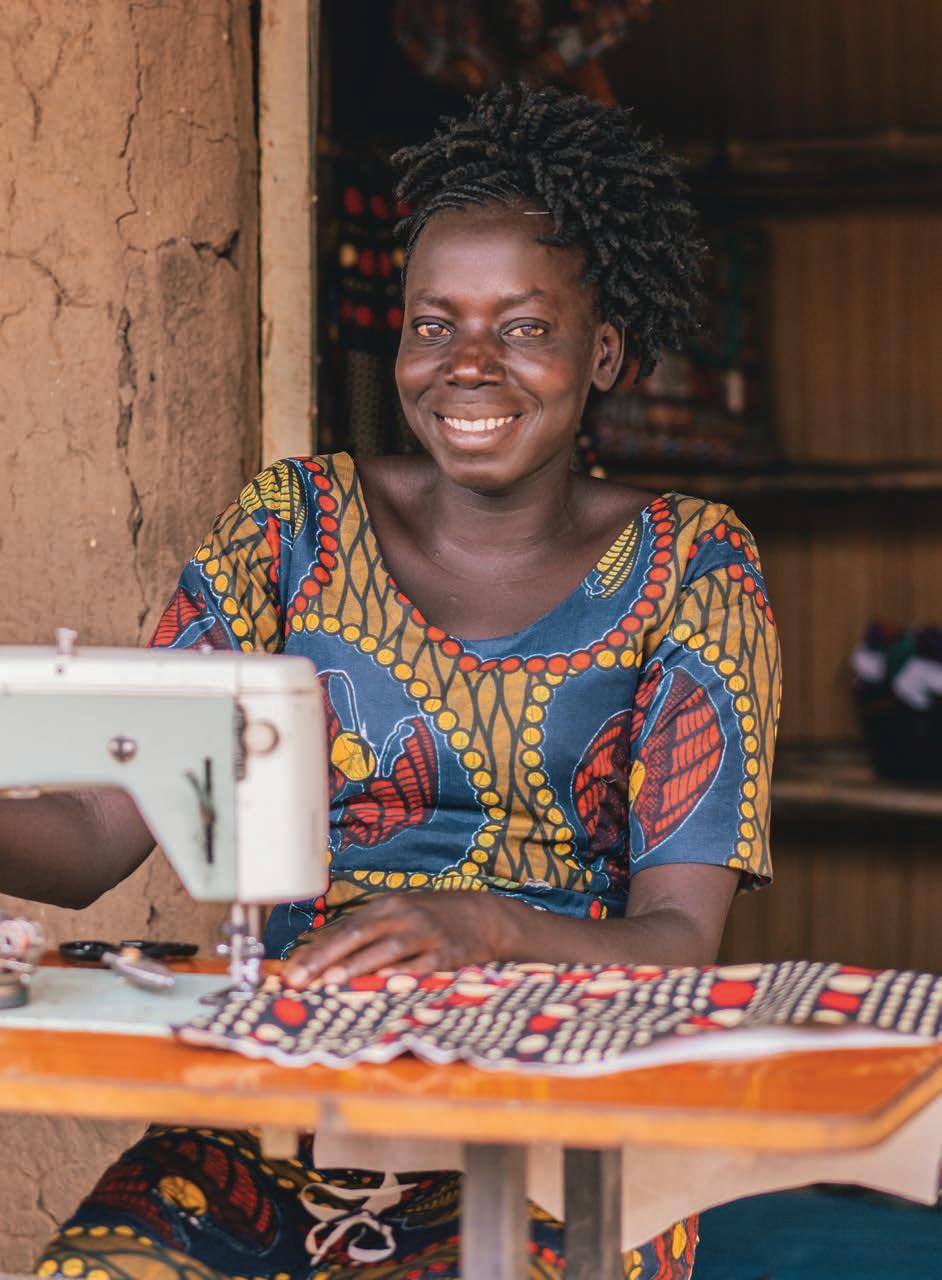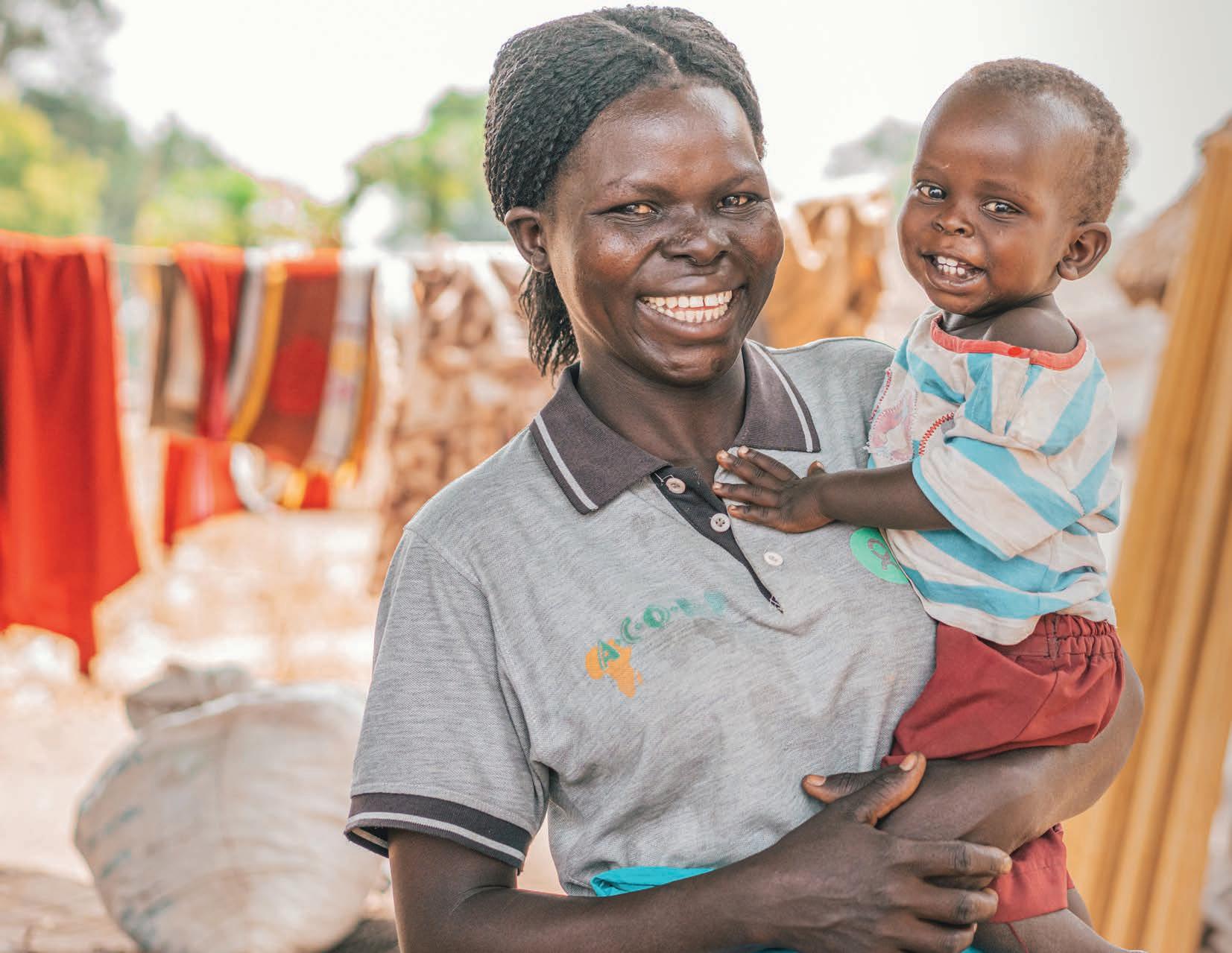
2 minute read
Impact Comparison
IMPACT COMPARISON
Refugees are capable
Advertisement
The definition of refuge is “a condition of being safe or sheltered from pursuit, danger, or trouble.” In a crisis, refuge and aid are the immediate needs, but, unfortunately, this is often where the focus remains, creating dependency and trapping families in a perpetual cycle of poverty.
Restoration is “the action of returning something to a former owner, place, or (in this case) condition.”
AT SEED EFFECT WE BELIEVE:
Refuge isn’t meant to be the end goal. Restoration is.
Our vision is to shift the way the world responds to refugee crises by moving away from dependence creating, short-sighted solutions towards Christcentered, self-sustaining, and empowering tools that promote restoration.
“As soon as we recognize the assumption that refugees will go home quickly is a fiction, then it becomes imperative to embrace a development-based approach as early in a refugee crisis as possible.” 1
BETTS AND COLLIER, Refuge: Rethinking Refugee Policy in a Changing World
m The broken system
In their book, Refuge: Rethinking Refugee Policy in a Changing World, political scientist, Alexander Betts, and economist, Paul Collier, call out the paramount realities in today's refugee system:
1. Worldwide, 54% of refugees are in protracted situations. The average exile lasting 26 years.
2. Refugees are "often denied access to the right to work or to freedom of movement.”1
“The current system for refugees who remain in their region of origin is a disaster," note Betts and Collier.
m Uganda is unique
Unlike the broken system described by Betts and Collier, Uganda is one of the few host countries in the world offering refugees the right to work and freedom of movement. Uganda's policy has afforded Seed Effect the opportunity to serve South Sudanese refugees and their Ugandan neighbors and compare the impact.
COMPARING THE IMPACT
When given the right tools, Ugandans are successfully saving, investing, paying back small loans and providing for their families. And, while the refugees were hit particularly hard during the COVID-19 lockdowns, our data shows that South Sudanese refugees are successfully doing the same.
This supports Betts and Collier’s case for a new, development-based approach in response to the world’s refugee crisis.
Additionally, Dr. Stephen DeLoach, Professor and Chair of Elon University’s department of Economics, conducted an independent control group study from 2018 to 2020 to see how the impact amongst Seed Effect members compares to the general population.
Results of this study support that Seed Effect’s program does have significant positive effects for both refugee and
host community participants. DeLoach reports that “relative to non-participants, members of Seed Effect’s groups on average experienced significant increases in most asset categories over the course of one year.”
Non-participants reported a decrease in the value of livestock owned while Seed Effect members experienced a significant increase (+628% in comparison). This increase, DeLoach found, is seen in both the refugee and host community participants alike.
m
Read Dr. DeLoach's full report at seedeffect.org/impactreport











